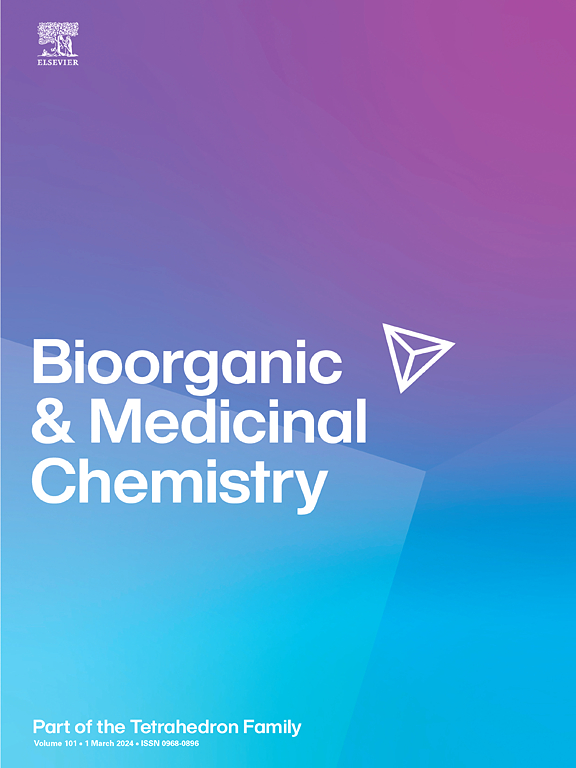2022 - 2024年针对SARS-CoV-2 Mpro的合成小分子的最新突破
IF 3.3
3区 医学
Q2 BIOCHEMISTRY & MOLECULAR BIOLOGY
引用次数: 0
摘要
在已确定的开发抗冠状病毒治疗的靶标中,SARS-CoV-2 Mpro因其在病毒复制中的关键作用以及在各种冠状病毒之间的低易变性而成为最有希望的靶标之一,使其成为潜在的广谱靶标。目前,虽然已批准的靶向Mpro的药物是具有足够疗效的拟肽抑制剂,但它们的药代动力学特性相对较差,通常与肽基化合物相关。相反,使用非肽类小分子Mpro抑制剂可以提供许多优点,包括降低脱靶毒性,改善代谢稳定性和更适合口服给药的药物样特性。这个话题引起了科学界的兴趣,近年来发表了许多研究。本文综述了近两年来合成SARS-CoV-2 Mpro小分子抑制剂的鉴定和开发的最新进展。本文章由计算机程序翻译,如有差异,请以英文原文为准。
Recent breakthroughs in synthetic small molecules targeting SARS-CoV-2 Mpro from 2022 to 2024
Among the identified targets for developing anti-coronavirus therapies, SARS-CoV-2 Mpro stands out as one of the most promising due to its crucial role in viral replication and its low mutability across various coronaviruses, making it a potential broad-spectrum target. Currently, although the approved drugs targeting Mpro are peptidomimetic inhibitors with an adequate efficacy, they exhibit relatively poor pharmacokinetic properties commonly associated with peptide-based compounds. On the contrary, using non-peptidic small-molecules Mpro inhibitors can offer many advantages, including reduced off-target toxicity, improved metabolic stability and drug-like properties more appropriate for oral administration. This topic has sparked interest in the scientific community, leading to the publication of numerous studies in recent years. In this review, we summarize the most recent progress over the past two years in the identification and development of synthetic small-molecule inhibitors of SARS-CoV-2 Mpro.
求助全文
通过发布文献求助,成功后即可免费获取论文全文。
去求助
来源期刊

Bioorganic & Medicinal Chemistry
医学-生化与分子生物学
CiteScore
6.80
自引率
2.90%
发文量
413
审稿时长
17 days
期刊介绍:
Bioorganic & Medicinal Chemistry provides an international forum for the publication of full original research papers and critical reviews on molecular interactions in key biological targets such as receptors, channels, enzymes, nucleotides, lipids and saccharides.
The aim of the journal is to promote a better understanding at the molecular level of life processes, and living organisms, as well as the interaction of these with chemical agents. A special feature will be that colour illustrations will be reproduced at no charge to the author, provided that the Editor agrees that colour is essential to the information content of the illustration in question.
 求助内容:
求助内容: 应助结果提醒方式:
应助结果提醒方式:


